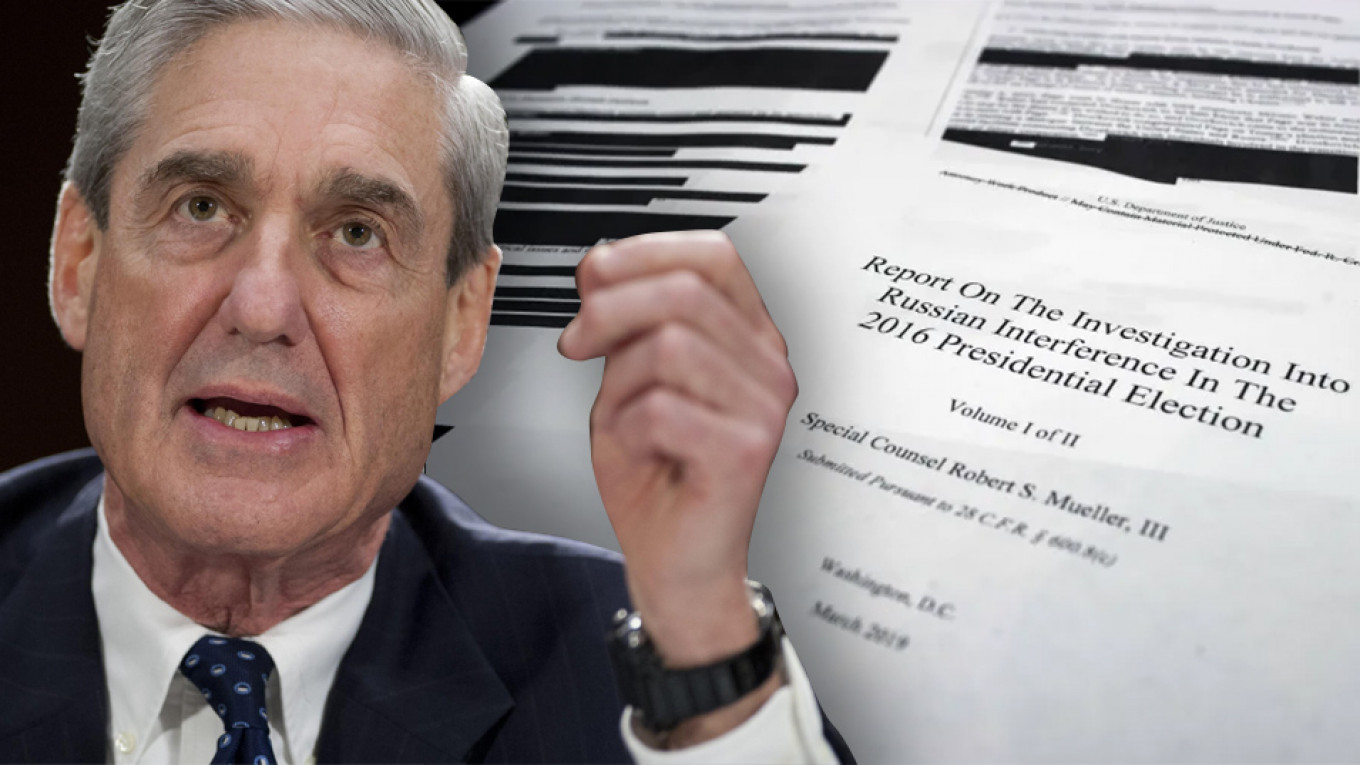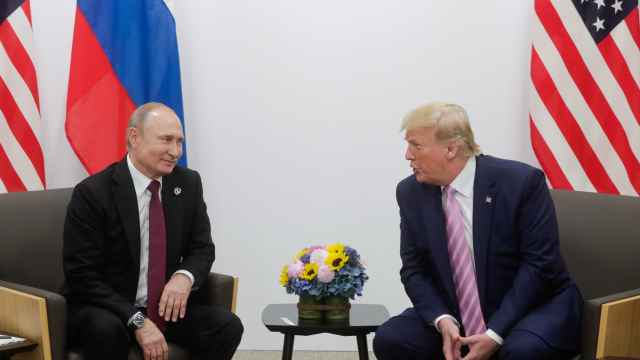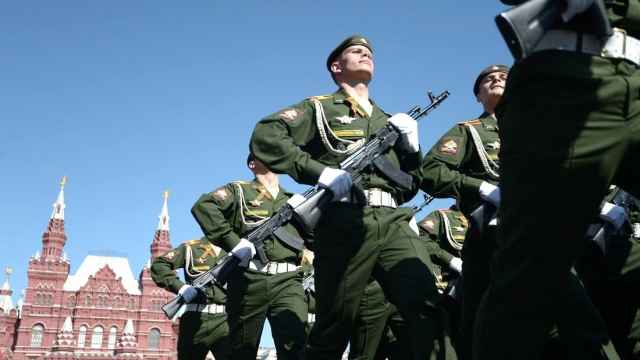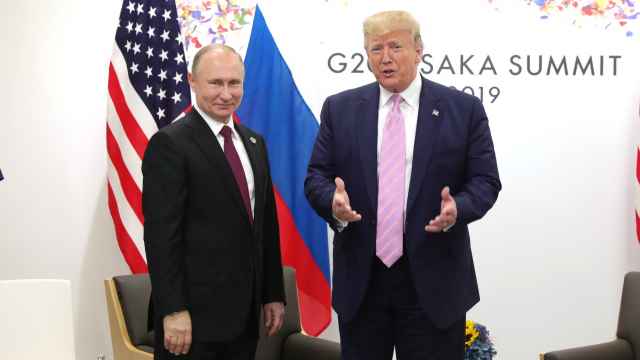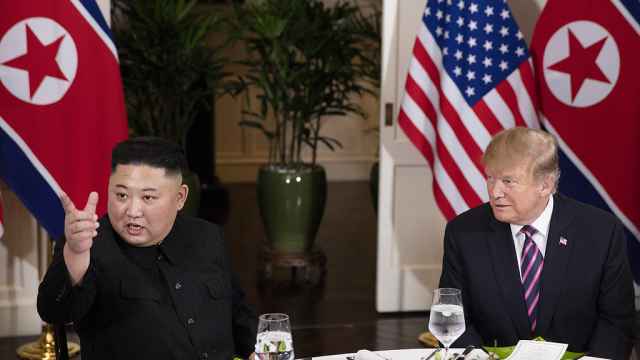For some time now I have been pushing the notion that Vladimir Putin’s Russia is best understood as an ‘adhocracy’, which I define in my ECFR report Controlling Chaos as a system in which the true elite is defined by service to the needs of the Kremlin rather than any specific institutional or social identity.
They may be spies, or diplomats, journalists, politicians, or millionaires; essentially they are all ‘political entrepreneurs’ who both seek to serve the Kremlin or are required to do so, often regardless of their formal role.
The activities of the ‘adhocrats,’ and those of the myriad lesser ‘political entrepreneurs‘ who aspire to that role, are occasionally directly tasked by the Kremlin, sometimes indirectly tasked through hints, nods and winks, and often their own initiatives, acting in ways that they hope will please the boss(es). I talk about this system more fully in my new book, We Need To Talk About Putin.
In this context, an initial quick skim of the ‘Mueller Report’ is gratifyingly supportive of this notion. Of course, the report does highlight cases of clear, direct, Russian government action, notably the GRU’s hack-and-leak operation.
Far more frequent, though, are indications of a Kremlin that not only did not want or expect Trump to become president (in my opinion, the Russians were convinced Clinton would win and were simply trying to disrupt her assumed presidency, fearing she would embark upon a concerted campaign against them). If anything, the Kremlin was worried about its lack of traction with the campaign, and relied on the actions of sundry political entrepreneurs.
Consider, for example, what Pyotr Aven, head of Alfa-Bank, said:
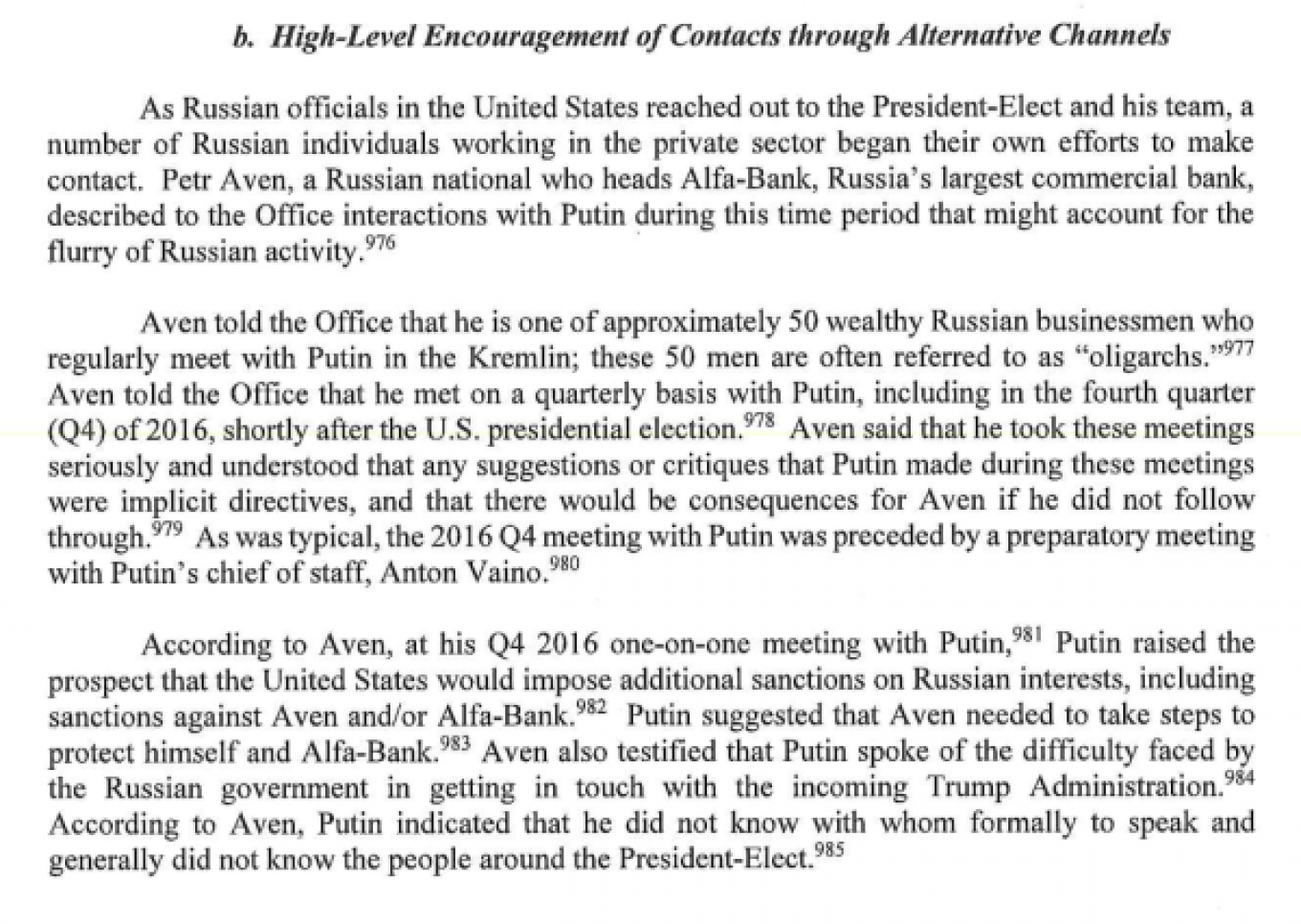
Later:

In other words, the Kremlin was disconnected from the campaign, and felt that this was a concern. Figures such as Aven saw this as both a threat to their own interests, and also an implicit instruction from the Kremlin, and acted accordingly.
So all kinds of different actors set out to use whatever opportunities they had to try and open lines of communication, from the lawyer Veselnitskaya, through to Russian Direct Investment Fund CEO Kirill Dmitriev:
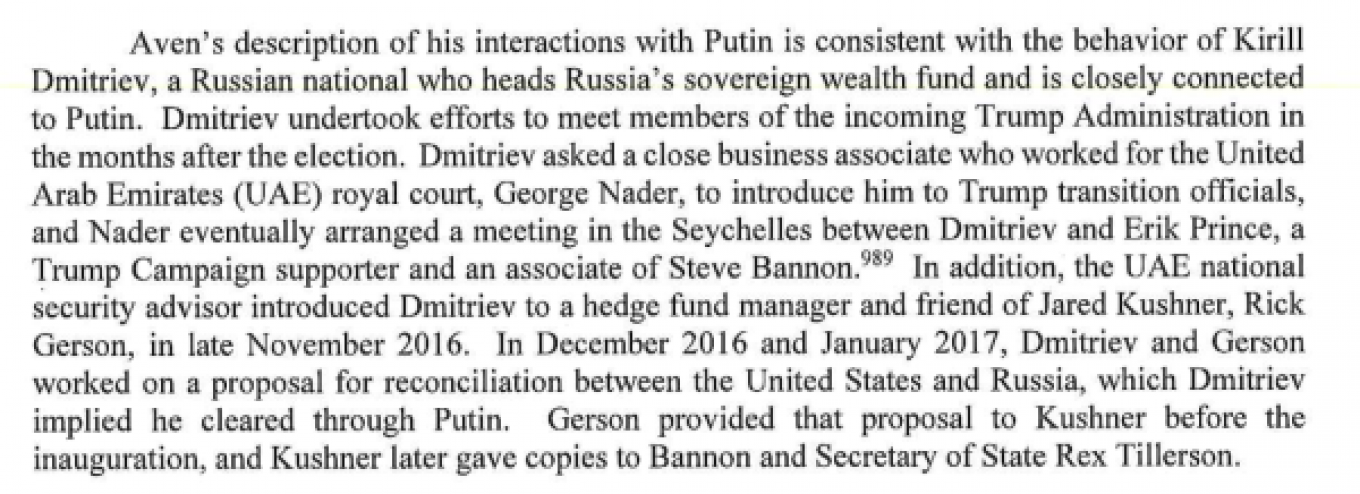
But here’s the thing: not only was it in the direct interests of these individuals to try and build bridges with a presidential contender and then the transition team of the president-elect, but it was also entirely normal.
All kinds of countries, businesses and interests were doing the same, from the Saudis and Emiratis to Marine Le Pen.
If anything, the evidence of the report — and of subsequent developments, in which once one strips away Trump’s bizarrely enthusiastic rhetoric about Putin, one can see that U.S. policy towards Russia is tougher than at any point since 1991 — is of a Kremlin as bewildered by the prospect of the new presidency as anyone else, and thus interested to see if any of its adhocrats could get a meaningful line into the campaign and transition teams.
And, despite various meetings and overtures, the answer is that they did not manage to get such a line.
So, please, put away those onion-dome-on-the-White-House graphics, abandon those excitable claims of Trump as a Russian agent and the Trump Tower Moscow project as anything but the overheated hype and hopes of some grifters who didn’t understand how modern Russia works.
Trump and his circle can be damned in all kinds of ways, from obstruction of justice to incompetence. But this is an American story and sin, not a Russian import.
This article was originally published by 'In Moscow's Shadows.'
A Message from The Moscow Times:
Dear readers,
We are facing unprecedented challenges. Russia's Prosecutor General's Office has designated The Moscow Times as an "undesirable" organization, criminalizing our work and putting our staff at risk of prosecution. This follows our earlier unjust labeling as a "foreign agent."
These actions are direct attempts to silence independent journalism in Russia. The authorities claim our work "discredits the decisions of the Russian leadership." We see things differently: we strive to provide accurate, unbiased reporting on Russia.
We, the journalists of The Moscow Times, refuse to be silenced. But to continue our work, we need your help.
Your support, no matter how small, makes a world of difference. If you can, please support us monthly starting from just $2. It's quick to set up, and every contribution makes a significant impact.
By supporting The Moscow Times, you're defending open, independent journalism in the face of repression. Thank you for standing with us.
Remind me later.



